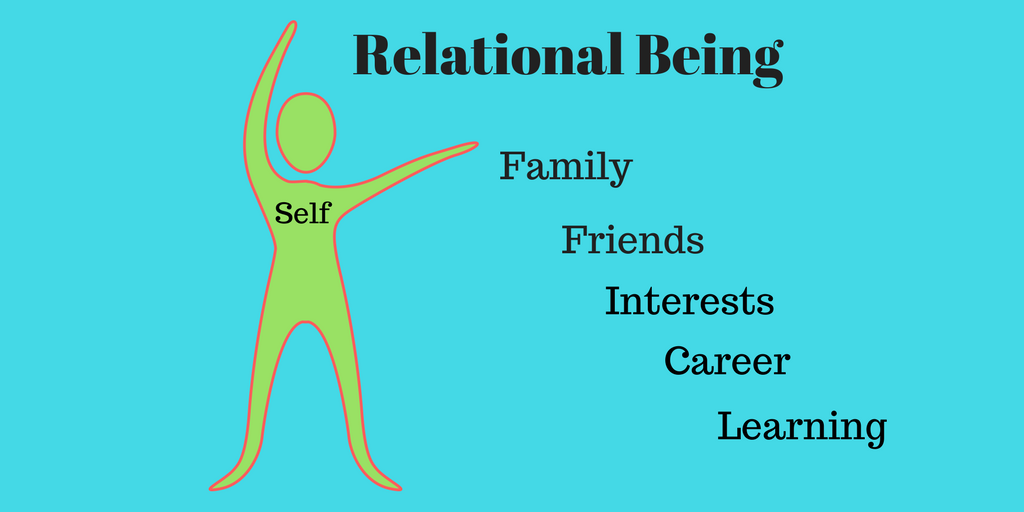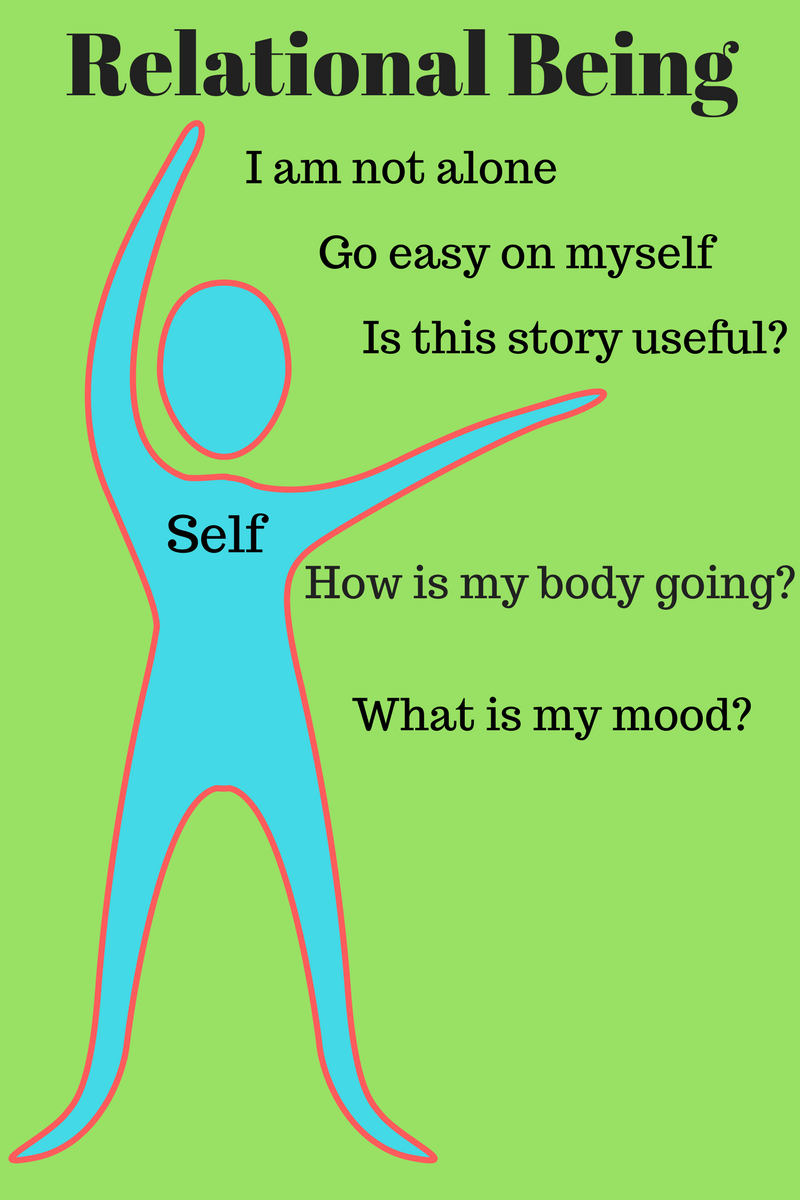In these Posts, I offer ways to manage our Well-Being; how we can thrive in Relationships; be Happy. Let’s engage together on this journey.
In this Post, I start to explore 5 factors that help us be in a space of peace and openness, actions that enable us to be Aware of what may be blocking actioning our
To Recap

In Part 1, I suggested Well-Being is how we engage in Relationship with ourselves and others.

In Parts 2 to 5, I discussed our
Now How to Help Us Implement Our
I offer 5 factors that help us be in a space of peace and openness, actions that enable us to be Aware of what may be blocking actioning our
- We are not alone
- Go easy on ourselves
- Is this story useful?
- How are our bodies going?
- What are our moods and emotions?
As with our
In this Part, I will discuss the first two
- we are not alone
- go easy on ourselves

We are not alone
Really? You’re kidding me. You’ve been anxious about being a Leader/Parent? I always see you as so confident, able to handle it all?
How many times do we say or hear a variant of these words? For most of what we go through, we can be sure those around us have gone through similar things. We don’t speak about it. Just yesterday, a Leader wondered if others went through the same issues he is experiencing as a spouse and parent. This wondering leads to anxiety.
And this anxiety can be compounded when we hear about others who seem to waltz through their hectic lives. I remember reading an article about a “power couple”, friends of ours who had their own businesses. They came across as unfazed can-do people, at the same time as having 4 young children. I knew them as a delightful caring couple. However, the article left out the back story of having two sets of active grandparents nearby, a nanny, help to do the school runs and assistance with housekeeping. Nothing wrong with that, but if I did not know this, then I may ask, why am I struggling, with the anxiety that may go with that? If we do tell stories, let’s tell the whole story.
I’ve been around long enough to know none of us
Go easy on ourselves
Let’s first use our energy in the most effective way. Try not to resist our downs. Rather let our energy go into Curiosity, into learning. If they continue, take Responsibility for reaching out, summoning our courage to make Requests to our support group, or finding help, someone to have a conversation with, be it a mentor, coach or counsellor (see Part 5). And in this way, gently moving these downs to the side.
In later Posts, I will chat about some challenges in saying Yes to the Mess (see Part 1) of my Relationships with Family, Friends, Interests, Career and Learning. For now, I will mention one story, when I left corporate life in 2000 and built up a sole legal practice over 8 years. It was successful financially and I relished the Relationships I built up. Working 24/7 became the norm. Stress gripped me; blinding me to my
QUESTION: What are your stories?
What’s Next?
In the next 2 POSTS, I will continue discussing factors that help us be in a space of peace and openness, actions that enable us to be Aware of what may be blocking actioning our
- In Part 7, our stories and our bodies
- In Part 8, our moods and emotions
I look forward to our next engagement. Until then, take care of yourself, your loved ones and your work teams.
Have A Question?
ARC Coaching, Mentoring & Facilitation is all about generative questions. Let’s travel together to create possibilities. See www.arccoaching.com.au
Contact Bill Ash at [email protected]
Footnotes
- See https://en.wikipedia.org/wiki/DSM-5
- I am not saying eg, clinical depression may not be present. My point is to challenge medical explanations and be Curious about our own way of being. Let me take a definition of ADHD: attention deficit hyperactivity disorder as a mental disorder of the neurodevelopmental type; characterised by problems paying attention, excessive activity, or difficulty controlling behaviour which is not appropriate for a person’s age: see https://en.wikipedia.org/wiki/Attention_deficit_hyperactivity_disorder and for the DSM definition see http://adhd-institute.com/assessment-diagnosis/diagnosis/dsm-5/ As a parent, I wonder how many children, at a particular point of their journey, have problems paying attention, excessive activity, or difficulty controlling behaviour simply from how we educate and our expectations of them. Rather than automatically look for medical explanations do we look for “environmental” explanations, how we parent or whether the school our child attends is appropriate for our child?
Prior Parts
https://www.arccoaching.com.au/well-us-relationship-part-1-setting-scene/
https://www.arccoaching.com.au/managing-well-being-part-2-introducing-our-arrrc/
https://www.arccoaching.com.au/managing-our-well-being-part-3-our-arrrc-awareness-curiosity/
https://www.arccoaching.com.au/managing-our-well-being-part-4-our-arrrc-responsibility-respect/
